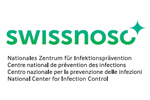Large intestine
Disorders of the large intestine
The large intestine joins the small intestine to the anus and is approximately 80 cm long. Its main function is to remove water from the faeces to give them a thicker consistency.
Diseases commonly affecting the large intestine include diverticular disease (diverticulosis, diverticulitis, diverticular bleeding), benign polyps and colon cancer. Cancer of the colon is diagnosed in roughly 4,000 patients every year in Switzerland. A diagnosis of a chronic inflammatory intestinal disease such as Crohn's disease or ulcerative colitis is less common.
Symptoms / Diagnosis
Abdominal pain, constipation and diarrhoea, visible blood loss or anaemia can all be symptoms of diseases affecting the large intestine. Diverticulitis is typically accompanied by pain in the lower left quadrant of the abdomen and a raised temperature. It is usually diagnosed by clinical examination plus computed tomography and/or colonoscopy. If the cause of intense abdominal pain cannot be identified, endoscopy of the abdominal cavity is occasionally performed to enable a more accurate diagnosis to be made.
Gastroenterological treatment
During colonoscopy, a procedure which is increasingly being used in the early detection of intestinal cancer, polyps can be removed directly using a snare heated by electric current. Very large polyps are occasionally removed by an interdisciplinary team in the operating theatre using a laparotomy technique.
A diagnosis of chronic inflammatory intestinal disease is made on the basis of a biopsy and the impression gained during endoscopy. Narrow sections (stenosis) can be dilated with a balloon.
Surgical treatment
Surgery on the large intestine (colon) is one of the main areas of activity at Claraspital. The centre performs more than 200 colon operations each year in order to treat tumours or inflammatory conditions.
The complex therapy of colon tumours necessitates close cooperation with experts in gastroenterology, nuclear medicine, radiology and oncology. All stages of therapy, from diagnostic examinations to follow-up, can be carried out here at Claraspital.
Advanced tumours in the rectum are initially treated with radiotherapy and chemotherapy in line with international standards. This causes the tumour to shrink and kills any secondary tumours in the lymph nodes. This preliminary treatment increases the cure rate and, depending on the location of the tumour, the shrinkage of the tumour caused by radiotherapy may enable the sphincter to be spared. It may be necessary to create a temporary stoma (artificial exit from the bowel) during surgery, but this can be reversed six weeks after the initial surgery in an operation lasting one hour.
Diverticula of the intestine are a common occurrence and rarely cause symptoms. However, they require surgery if they repeatedly become inflamed. During this operation the damaged part of the intestine is removed and the ends are sewn together.
Nowadays a section of colon can be removed using a minimally invasive (key-hole) technique. This method has the advantage of less post-operative pain and faster recovery. The team at Claraspital has a great deal of experience with this minimally invasive method, which has been in use for several years.
Back to range of services








